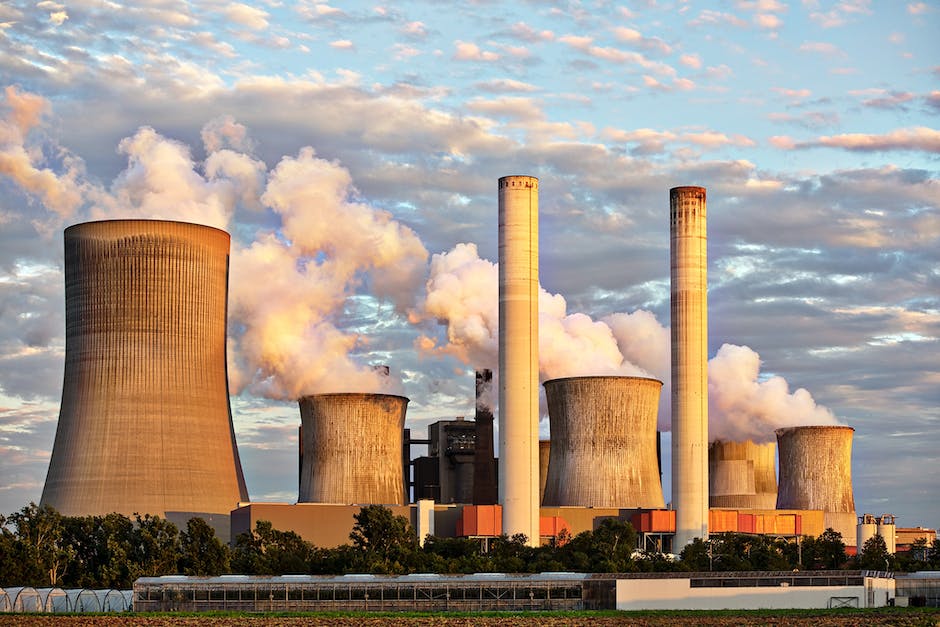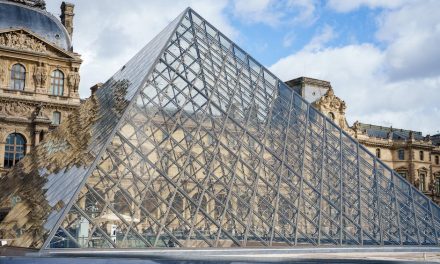Table of Contents
“The Future of Nuclear Energy: Empowering Arab Leadership for a Sustainable Tomorrow.”
Introduction
“The Future of Nuclear Energy: An Arab Leadership Perspective” explores the potential and outlook of nuclear energy in the Arab world from the viewpoint of Arab leaders. This perspective delves into the opportunities, challenges, and strategic considerations associated with the development and utilization of nuclear energy in the region. By examining the Arab leadership’s stance on nuclear energy, this analysis aims to shed light on the future trajectory of nuclear power in the Arab world and its implications for energy security, economic growth, and sustainable development.
The Potential of Nuclear Energy in Arab Countries

The Potential of Nuclear Energy in Arab Countries
Nuclear energy has long been a topic of interest and debate in the global energy sector. As the world continues to grapple with the challenges of climate change and the need for sustainable energy sources, many countries are looking to nuclear power as a viable solution. Arab countries, in particular, have shown a keen interest in exploring the potential of nuclear energy.
One of the main reasons why Arab countries are considering nuclear energy is the need to diversify their energy sources. Many Arab nations heavily rely on fossil fuels, such as oil and gas, for their energy needs. This heavy dependence on fossil fuels not only poses environmental risks but also makes these countries vulnerable to fluctuations in global oil prices. By investing in nuclear energy, Arab countries can reduce their reliance on fossil fuels and create a more stable and sustainable energy mix.
Another factor driving the interest in nuclear energy is the growing demand for electricity in Arab countries. Rapid population growth and urbanization have led to an increased need for electricity to power homes, businesses, and industries. Nuclear power plants have the potential to generate large amounts of electricity, making them an attractive option for meeting this growing demand. Additionally, nuclear energy is a reliable and consistent source of power, unlike renewable energy sources that are dependent on weather conditions.
Furthermore, nuclear energy can also contribute to economic development in Arab countries. The construction and operation of nuclear power plants require significant investments, which can stimulate economic growth and create job opportunities. Additionally, the development of a domestic nuclear industry can lead to the transfer of technology and expertise, fostering innovation and enhancing the country’s technological capabilities.
However, it is important to acknowledge the challenges and considerations associated with nuclear energy. Safety concerns are often at the forefront of discussions surrounding nuclear power. The potential for accidents, such as the Chernobyl and Fukushima disasters, raises questions about the safety of nuclear power plants. Arab countries must prioritize safety measures and ensure that stringent regulations and protocols are in place to mitigate any potential risks.
Another consideration is the management and disposal of nuclear waste. Nuclear power plants produce radioactive waste that needs to be carefully handled and stored to prevent any harm to humans and the environment. Arab countries must develop robust waste management strategies and invest in research and development to find innovative solutions for the long-term storage and disposal of nuclear waste.
Additionally, the proliferation of nuclear technology and materials is a concern for the international community. Arab countries must demonstrate their commitment to non-proliferation and adhere to international safeguards and agreements. Cooperation with international organizations, such as the International Atomic Energy Agency (IAEA), can help ensure the responsible and peaceful use of nuclear energy.
In conclusion, the potential of nuclear energy in Arab countries is significant. It offers an opportunity to diversify energy sources, meet growing electricity demand, and contribute to economic development. However, careful consideration must be given to safety, waste management, and non-proliferation concerns. By addressing these challenges and working in collaboration with the international community, Arab countries can harness the benefits of nuclear energy while ensuring a sustainable and secure future.
Advancements in Nuclear Technology and its Impact on Arab Nations
Advancements in Nuclear Technology and its Impact on Arab Nations
Nuclear energy has long been a topic of interest and debate, with its potential to provide a reliable and sustainable source of power. Arab nations, in particular, have been exploring the possibilities of nuclear energy and its impact on their economies and energy security. This article aims to provide an overview of the advancements in nuclear technology and its potential implications for Arab nations from a leadership perspective.
One of the key advancements in nuclear technology is the development of small modular reactors (SMRs). These reactors are smaller in size compared to traditional nuclear power plants, making them more flexible and easier to deploy. SMRs offer several advantages, including enhanced safety features, reduced construction costs, and the ability to be used in remote areas. Arab nations, with their vast desert landscapes, can benefit greatly from SMRs as they can be deployed in off-grid locations, providing electricity to remote communities and industries.
Another significant advancement in nuclear technology is the development of Generation IV reactors. These reactors are designed to be more efficient, safer, and produce less waste compared to previous generations. Generation IV reactors utilize advanced materials and cooling systems, making them more resistant to accidents and meltdowns. Arab nations, with their growing energy demands, can greatly benefit from the increased efficiency and safety of Generation IV reactors, ensuring a reliable and sustainable source of power for their economies.
Furthermore, the development of advanced fuel cycles, such as thorium-based reactors, holds great promise for Arab nations. Thorium is a naturally abundant element, and its utilization in nuclear reactors can significantly reduce the dependence on uranium, which is often imported. Arab nations, with their vast reserves of thorium, can become self-sufficient in fuel production, reducing their reliance on foreign sources and enhancing their energy security.
In addition to the advancements in nuclear technology, Arab nations are also exploring the potential of nuclear desalination. Desalination is a critical process for Arab nations, as they face water scarcity issues. Nuclear desalination plants can utilize the excess heat generated by nuclear reactors to produce fresh water from seawater. This integration of nuclear energy and desalination can address two pressing challenges simultaneously, providing a sustainable solution for both energy and water needs.
However, it is important to acknowledge the challenges and concerns associated with nuclear energy. Safety and security are paramount, and Arab nations must ensure that stringent safety measures and international standards are followed in the construction and operation of nuclear power plants. Additionally, the management and disposal of nuclear waste require careful planning and consideration to prevent any adverse environmental impacts.
In conclusion, advancements in nuclear technology offer significant opportunities for Arab nations in terms of energy security, economic development, and environmental sustainability. Small modular reactors, Generation IV reactors, advanced fuel cycles, and nuclear desalination all hold great promise for the future of nuclear energy in the Arab world. However, it is crucial for Arab leaders to approach nuclear energy with caution, ensuring the highest standards of safety, security, and environmental protection. By embracing these advancements responsibly, Arab nations can pave the way for a brighter and more sustainable future powered by nuclear energy.
Nuclear Energy as a Sustainable Solution for Arab Energy Needs
Nuclear Energy as a Sustainable Solution for Arab Energy Needs
The Arab world is facing a pressing challenge when it comes to meeting its energy needs. With a rapidly growing population and increasing industrialization, the demand for energy is skyrocketing. However, the region is also blessed with abundant natural resources, including oil and gas. While these resources have been the backbone of the Arab economies for decades, there is a growing realization that they are finite and their extraction and use have significant environmental consequences. As a result, Arab leaders are looking towards nuclear energy as a sustainable solution to meet their energy needs.
Nuclear energy has long been recognized as a viable alternative to fossil fuels. It is a clean and efficient source of energy that does not produce greenhouse gas emissions, making it an attractive option for countries looking to reduce their carbon footprint. Additionally, nuclear power plants have a high energy density, meaning they can generate a large amount of electricity from a relatively small amount of fuel. This makes nuclear energy a cost-effective solution for countries with limited resources.
Arab leaders understand the potential of nuclear energy to address their energy needs while also reducing their dependence on fossil fuels. Many Arab countries, such as the United Arab Emirates and Saudi Arabia, have already embarked on ambitious nuclear energy programs. These countries are investing heavily in the construction of nuclear power plants and are actively seeking partnerships with experienced nuclear energy providers.
One of the key advantages of nuclear energy is its ability to provide a stable and reliable source of electricity. Unlike renewable energy sources like solar and wind, which are dependent on weather conditions, nuclear power plants can operate continuously, providing a consistent supply of electricity. This is particularly important for Arab countries that experience high energy demand due to air conditioning needs in hot climates.
Furthermore, nuclear energy can also contribute to the development of other sectors of the economy. The construction and operation of nuclear power plants require a highly skilled workforce, creating job opportunities and driving economic growth. Additionally, the development of a nuclear energy sector can also stimulate research and development in related fields, such as nuclear medicine and desalination.
However, it is important to acknowledge the concerns and challenges associated with nuclear energy. Safety is a paramount concern, and Arab leaders are well aware of the need to ensure the highest standards of safety and security in their nuclear energy programs. They are working closely with international organizations, such as the International Atomic Energy Agency, to establish robust regulatory frameworks and implement best practices in nuclear safety.
Another challenge is the management of nuclear waste. While nuclear energy does not produce greenhouse gas emissions, it does generate radioactive waste that needs to be safely stored and managed for thousands of years. Arab leaders are actively exploring innovative solutions for the long-term storage and disposal of nuclear waste, including deep geological repositories.
In conclusion, nuclear energy holds great promise as a sustainable solution for Arab energy needs. Arab leaders recognize the potential of nuclear energy to provide a stable and reliable source of electricity while reducing their dependence on fossil fuels. They are investing in the construction of nuclear power plants and working closely with international organizations to ensure the highest standards of safety and security. While challenges remain, such as the management of nuclear waste, the future of nuclear energy in the Arab world looks bright.
Challenges and Opportunities for Arab Leadership in Nuclear Energy Development
Challenges and Opportunities for Arab Leadership in Nuclear Energy Development
The future of nuclear energy holds great promise for the Arab world, but it also presents a unique set of challenges for Arab leadership. As countries in the region seek to diversify their energy sources and reduce their dependence on fossil fuels, nuclear energy has emerged as a viable option. However, the development and implementation of nuclear energy programs require careful planning, strong leadership, and a commitment to safety and security.
One of the key challenges facing Arab leadership in nuclear energy development is the lack of technical expertise and infrastructure. While some countries in the region, such as the United Arab Emirates and Saudi Arabia, have made significant progress in this area, others are still in the early stages of building their nuclear capabilities. This requires a coordinated effort to develop the necessary skills and knowledge, as well as the establishment of robust regulatory frameworks to ensure the safe and secure operation of nuclear power plants.
Another challenge is the perception of nuclear energy among the Arab population. While nuclear power has proven to be a reliable and clean source of energy in many parts of the world, there is still a level of skepticism and fear surrounding its use. Arab leadership must address these concerns through effective communication and education campaigns, highlighting the benefits of nuclear energy and dispelling any misconceptions about its safety and environmental impact.
In addition to these challenges, Arab leadership must also navigate the complex geopolitical landscape surrounding nuclear energy. The proliferation of nuclear weapons and the potential for nuclear accidents or terrorist attacks are real concerns that must be addressed. Arab countries must work together to establish strong regional cooperation mechanisms, share best practices, and collaborate on safety and security measures. This requires a high level of diplomatic skill and a commitment to international non-proliferation efforts.
Despite these challenges, there are also significant opportunities for Arab leadership in nuclear energy development. The region has abundant reserves of uranium, which can be used as fuel for nuclear power plants. By harnessing this resource, Arab countries can not only meet their own energy needs but also become major exporters of nuclear fuel. This would not only boost their economies but also enhance their geopolitical influence.
Furthermore, the development of nuclear energy can also create new job opportunities and drive economic growth. The construction and operation of nuclear power plants require a highly skilled workforce, which can help address the issue of unemployment in the region. Additionally, the establishment of a nuclear industry can attract foreign investment and stimulate the growth of related sectors, such as research and development, manufacturing, and services.
In conclusion, the future of nuclear energy in the Arab world holds both challenges and opportunities for Arab leadership. While the development and implementation of nuclear energy programs require careful planning and a commitment to safety and security, they also offer the potential for economic growth, energy independence, and enhanced geopolitical influence. Arab countries must work together to overcome the challenges and seize the opportunities presented by nuclear energy, ensuring a sustainable and prosperous future for the region.
Q&A
1. What is “The Future of Nuclear Energy: An Arab Leadership Perspective” about?
“The Future of Nuclear Energy: An Arab Leadership Perspective” is a book or publication that discusses the outlook and potential of nuclear energy from the perspective of Arab leaders.
2. Who is the author of “The Future of Nuclear Energy: An Arab Leadership Perspective”?
The author of “The Future of Nuclear Energy: An Arab Leadership Perspective” is not specified.
3. What are some key topics covered in “The Future of Nuclear Energy: An Arab Leadership Perspective”?
Some key topics covered in “The Future of Nuclear Energy: An Arab Leadership Perspective” may include the role of nuclear energy in Arab countries, potential benefits and challenges, policy considerations, and future prospects.
4. Is “The Future of Nuclear Energy: An Arab Leadership Perspective” focused on a specific region or country?
Yes, “The Future of Nuclear Energy: An Arab Leadership Perspective” focuses on the perspective of Arab leaders, indicating a regional focus on Arab countries.
Conclusion
In conclusion, “The Future of Nuclear Energy: An Arab Leadership Perspective” highlights the potential of nuclear energy in the Arab region. It emphasizes the importance of strategic planning, international cooperation, and investment in research and development to ensure the safe and sustainable utilization of nuclear power. The paper also emphasizes the need for Arab leaders to address public concerns, promote transparency, and establish robust regulatory frameworks to build public trust and confidence in nuclear energy. Overall, the Arab leadership perspective on the future of nuclear energy recognizes the significant role it can play in meeting the region’s growing energy demands while reducing carbon emissions and diversifying the energy mix.





Recent Comments